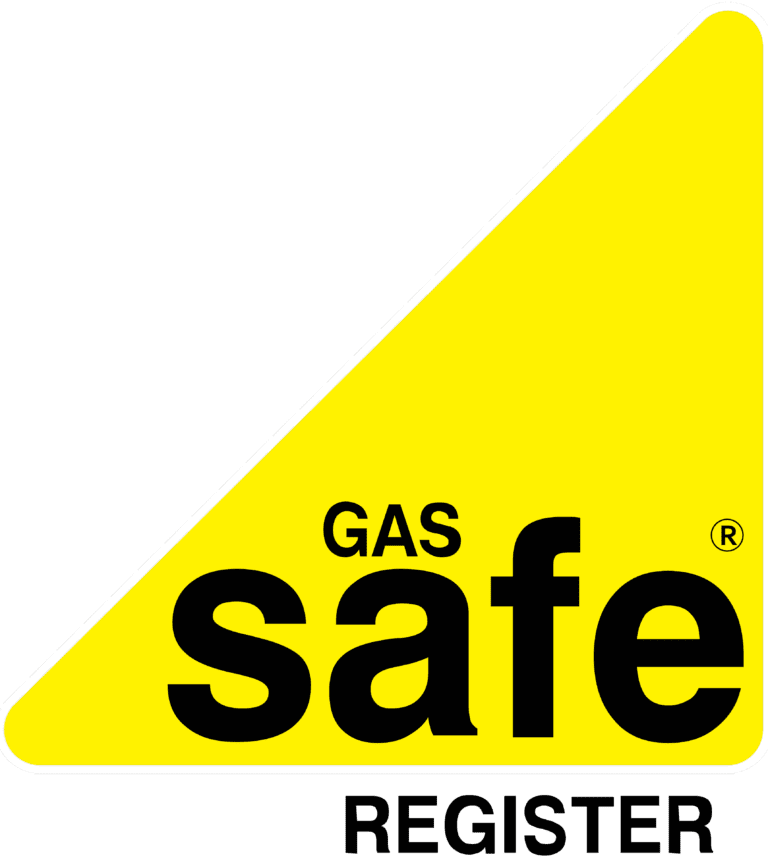Table of Contents
When plumbing disasters strike, knowing whether to attempt a DIY fix or call an emergency plumber can save you hundreds of pounds and prevent catastrophic damage. This guide helps UK homeowners make critical decisions during common plumbing emergencies.
Emergency Assessment: The 60-Second Decision Framework
Call Emergency Plumber IMMEDIATELY if:
- Gas smells detected anywhere
- Electrical hazards near water
- Structural flooding occurring
- Sewage backing up
- No hot water in winter with vulnerable occupants
- Water meter spinning when all taps off (indicates major leak)
Consider DIY First if:
- Single fixture affected
- No electrical dangers present
- You have appropriate tools
- Problem is clearly visible and accessible
- No gas appliances involved
Burst Pipe Emergency Protocol
Immediate Actions (First 2 Minutes):
- Turn off water at mains stop cock – Location: Usually near front gate or where supply enters property
- Turn off electricity if water near electrical outlets/appliances
- Open all taps to drain remaining water from system
- Move valuables away from affected area
Temporary Repair Options:
Pipe Repair Clamps (£8-15):
- Effective for small splits in accessible pipes
- Place rubber pad over leak, secure with metal clamp
- Temporary solution until professional repair
Emergency Pipe Tape:
- Wrap tightly around leak area
- Overlap each layer by 50%
- Works for minor leaks on accessible pipework
Professional Required for:
- Burst pipes behind walls
- Multiple pipe failures
- Structural damage from flooding
- Underground pipe bursts
Boiler Breakdown Emergencies
No Hot Water/Heating:
Quick DIY Checks:
- Check boiler pressure (should be 1-1.5 bar)
- Reset boiler if error code displayed
- Check thermostat settings and batteries
- Verify gas supply to other appliances
- Check fuses/circuit breakers
Error Code Actions:
- E133/E119: Usually pressure-related, try topping up
- F28/F22: Gas supply issues – check other gas appliances
- F75: Pressure sensor fault – professional required
Call Professional Immediately if:
- Gas smell detected
- Boiler making unusual noises
- Visible water leaks from boiler
- Error codes persist after basic checks
- Carbon monoxide alarm activated
Blocked Toilet Emergencies
Overflowing Toilet:
Immediate Actions:
- Turn off water supply at toilet isolation valve
- Remove toilet cistern lid and lift float arm
- Use large towels to contain overflow
- Do not continue flushing
DIY Solutions:
- Plunging: Use toilet-specific plunger with flange
- Hot water: Pour from height to break blockage
- Dish soap: 50ml washing-up liquid as lubricant
Professional Required if:
- Multiple toilets affected
- Sewage backing up from drains
- Blockage won’t clear after 30 minutes
- Structural damage from overflow
Major Water Leaks
Kitchen/Bathroom Flooding:
Priority Actions:
- Stop water source (isolate affected fixture)
- Protect electrical items and outlets
- Document damage for insurance
- Begin water removal immediately
DIY Temporary Fixes:
- Turn off supply at fixture isolation valves
- Use waterproof tape for small joint leaks
- Place buckets under active drips
- Remove excess water with towels/mop
Professional Assessment Needed:
- Ceiling leaks (indicate pipes above)
- Wall dampness (hidden pipe damage)
- Multiple leak sources
- Structural water damage
Drain and Sewer Backups
Sewage Emergency Protocol:
Health and Safety:
- Evacuate affected area immediately
- Avoid contact with contaminated water
- Turn off electricity if water present
- Ventilate area if safe to do so
Never Attempt DIY if:
- Raw sewage present
- Multiple drains backing up
- Manhole covers overflowing
- Contaminated water in living areas
Professional Required: All sewage backups require professional cleanup due to health hazards and specialised equipment needs.
Cost Analysis: Emergency vs Planned Repairs
Emergency Callout Costs:
- Evening/Weekend: £150-300
- Bank holidays: £200-400
- Emergency parts: 50-100% markup
- Damage limitation: £500-5,000+
Planned Repair Costs:
- Standard callout: £80-120
- Normal parts pricing: List price
- Prevention focus: £50-200
- Insurance coverage: Often better for planned maintenance
The 10x Rule: Emergency repairs often cost 5-10 times more than preventive maintenance or planned repairs.
Essential Emergency Kit
Every UK Home Should Have:
- Mains water stop cock key
- Basic pipe repair clamps
- Emergency pipe tape
- Torch with batteries
- Emergency plumber contact details
- Home insurance emergency helpline number
Location Awareness:
- Know your stop cock location
- Understand your heating system type
- Locate electrical consumer unit
- Identify gas meter and emergency valve
Decision Matrix: DIY vs Professional
Low Risk DIY:
- Single tap dripping
- Toilet cistern adjustments
- Radiator bleeding
- Blocked sink (single fixture)
Medium Risk – Consider Carefully:
- Multiple blocked drains
- Low water pressure throughout house
- Boiler pressure loss
- Minor visible leaks
High Risk – Professional Required:
- Any gas-related issues
- Electrical and water combination
- Structural flooding
- Sewage contamination
- Multiple system failures
Professional Emergency Services
What to Expect from Emergency Callouts:
- Response time: 2-4 hours for true emergencies
- Initial assessment: Problem diagnosis and safety check
- Temporary repairs: Stop damage and restore basic function
- Follow-up: Permanent repairs scheduled
- Documentation: Written report for insurance
Questions to Ask Emergency Plumbers:
- Gas Safe registration number
- Estimated arrival time
- Call-out charges and payment terms
- Insurance and guarantee coverage
- Availability for follow-up repairs
Emergency plumbing situations test homeowner decision-making under pressure. Understanding your limits and having professional contacts ready ensures you make the right choice when disasters strike.
For 24/7 emergency plumbing services across Kent, contact Plumbing Angels on 01732 792 454. Our Gas Safe registered engineers provide rapid response for all plumbing and heating emergencies.
True emergencies (gas leaks, major flooding) warrant 1-2 hour response times. Non-urgent evening/weekend calls typically see 2-4 hour response. Always clarify expected arrival time when booking.
Emergencies involve immediate danger (gas leaks, structural flooding, sewage backups) or complete loss of essential services in winter. Urgent repairs include single fixture failures or minor leaks that can wait until morning.
Only safe, temporary measures like turning off water supplies, containing leaks with buckets, and protecting property from damage. Never attempt gas work or electrical repairs near water.
Emergency callouts cost 50-150% more than standard appointments. Evening and weekend rates are £150-300 vs £80-120 for normal hours. Bank holidays can cost £200-400.
Many home insurance policies include emergency plumber coverage, often with preferred contractor networks. Check your policy and call your insurer’s emergency helpline for potential coverage.
Evacuate immediately, don’t use electrical switches or naked flames, call National Gas Emergency Service (0800 111 999) from outside the property, then contact a Gas Safe engineer once the emergency service gives clearance.
When emergencies strike, quick decisions prevent disasters. Know your limits, know your options.

